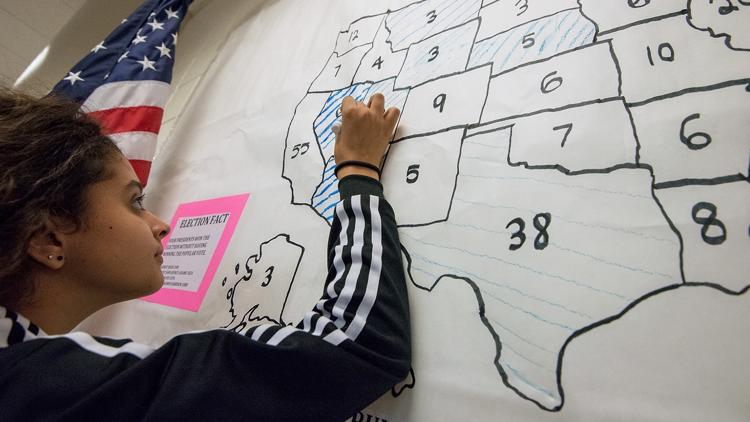
WASHINGTON — While the Electoral College for decades has had 538 votes for which presidential candidates must vie, how those votes are doled out to states does change frequently. Electoral College changes stemming from the 2020 Census will reshape the presidential battleground for the 2024 race between former President Donald Trump and Vice President Kamala Harris. Seven states lost one electoral vote each, while six states gained representation, according to Census-based reapportionment.
States that gained electoral votes for 2024 Texas emerged as the biggest winner, adding two electoral votes to reach 40. Florida, Montana and North Carolina — all of which supported former President Donald Trump in the previous two elections — each gained one electoral vote. Democratic-leaning Colorado and Oregon also increased their Electoral College representation by one vote each.

States that lost electoral votes Among the states losing electoral votes, California remains the most populous in the U.S. but dropped one electoral vote to 54.
Other Democratic strongholds seeing decreases include Illinois and New York, each losing one electoral vote. The battleground swing states of Michigan and Pennsylvania, which flipped from Trump in 2016 to President Joe Biden in 2020, lost one electoral vote each. Both have attracted significant attention from Harris and Trump during the 2024 campaign.
Ohio and West Virginia, both of which backed Trump in recent elections, also saw their electoral votes decrease by one. Why did the Electoral College representation change? These changes resulted from the Method of Equal Proportions, the mathematical formula used to determine congressional representation based on state population shifts documented in the 2020 Census. The Electoral College consists of each state's congressional delegation — one vote for each House member and senator — plus three votes for the District of Columbia.
.














